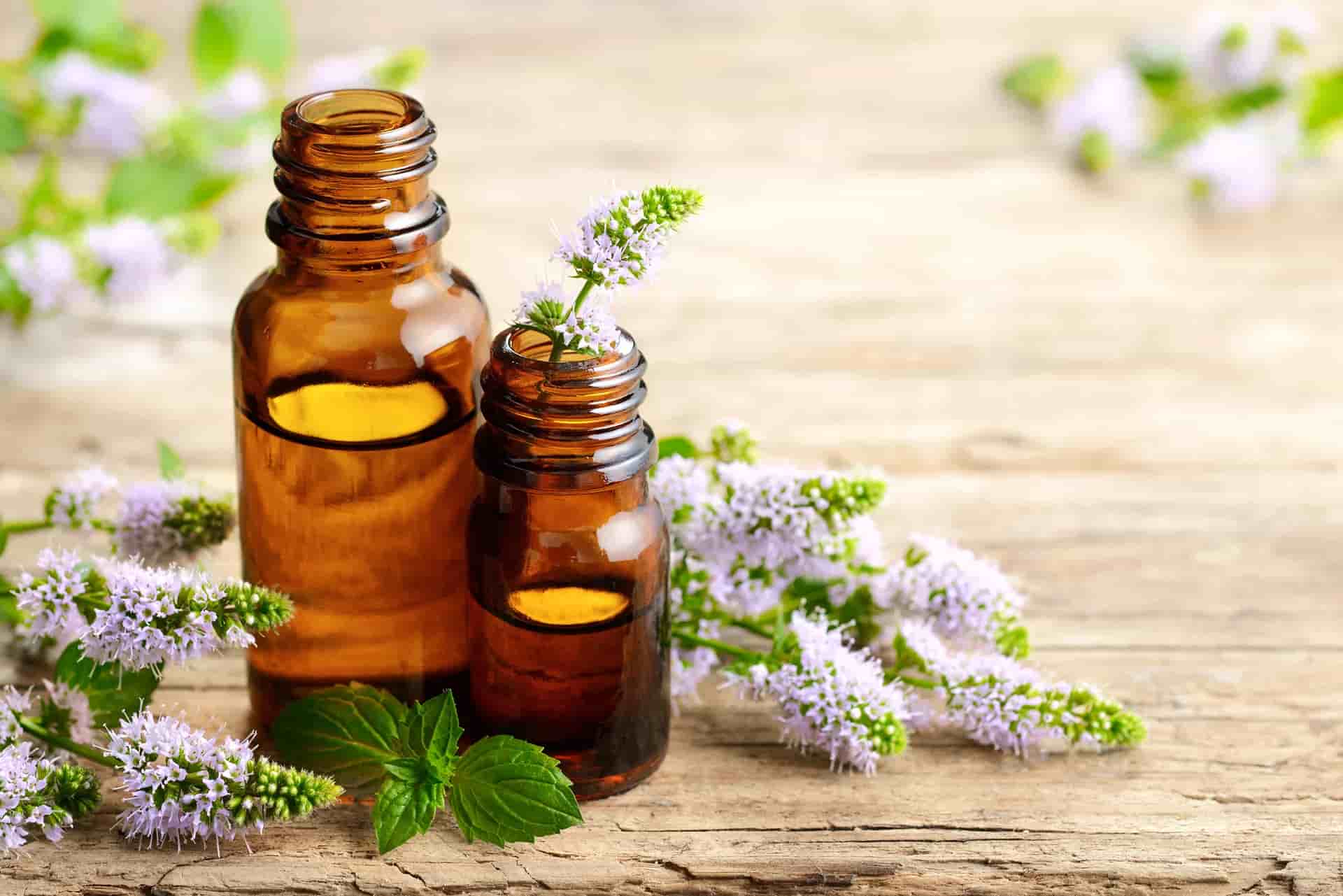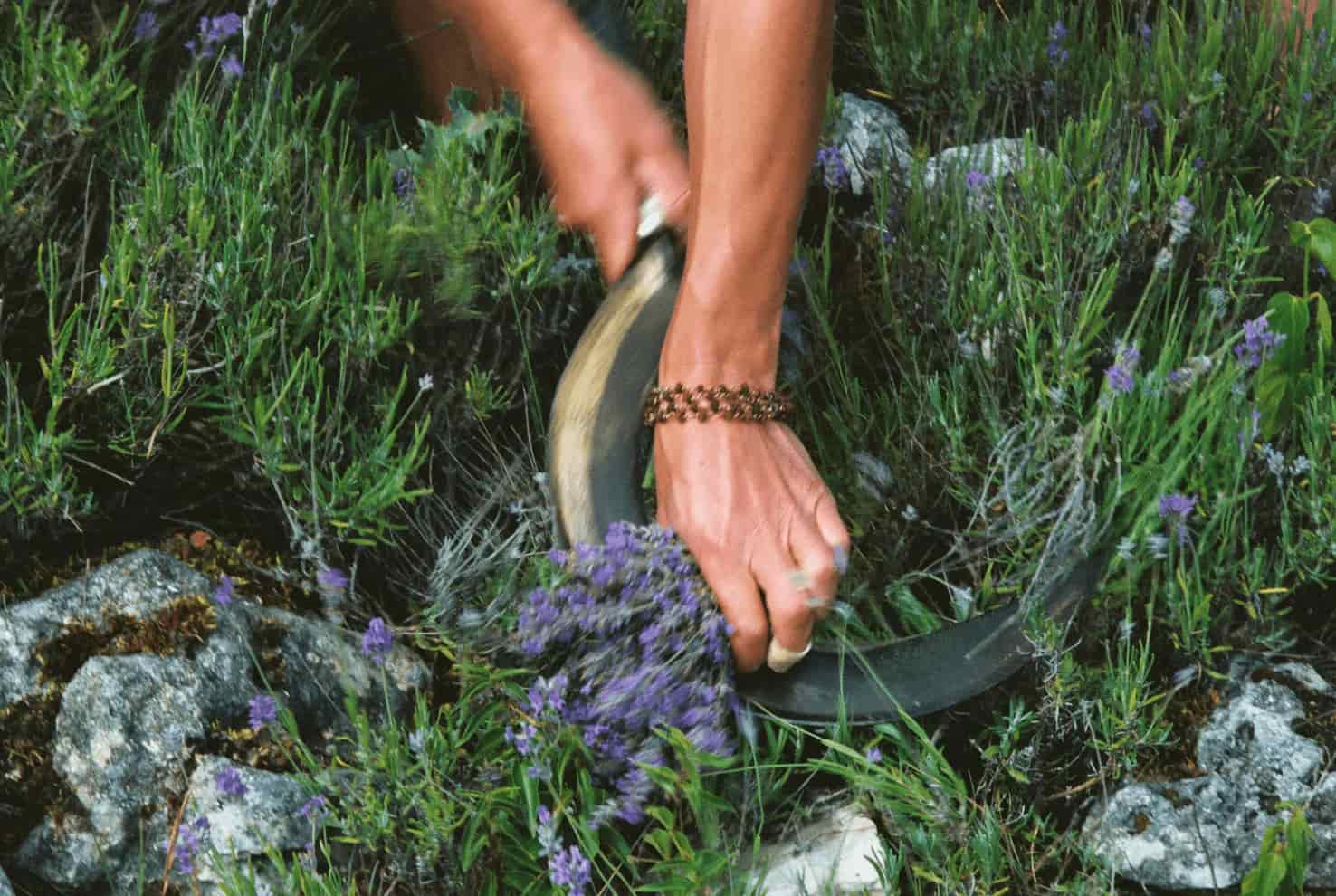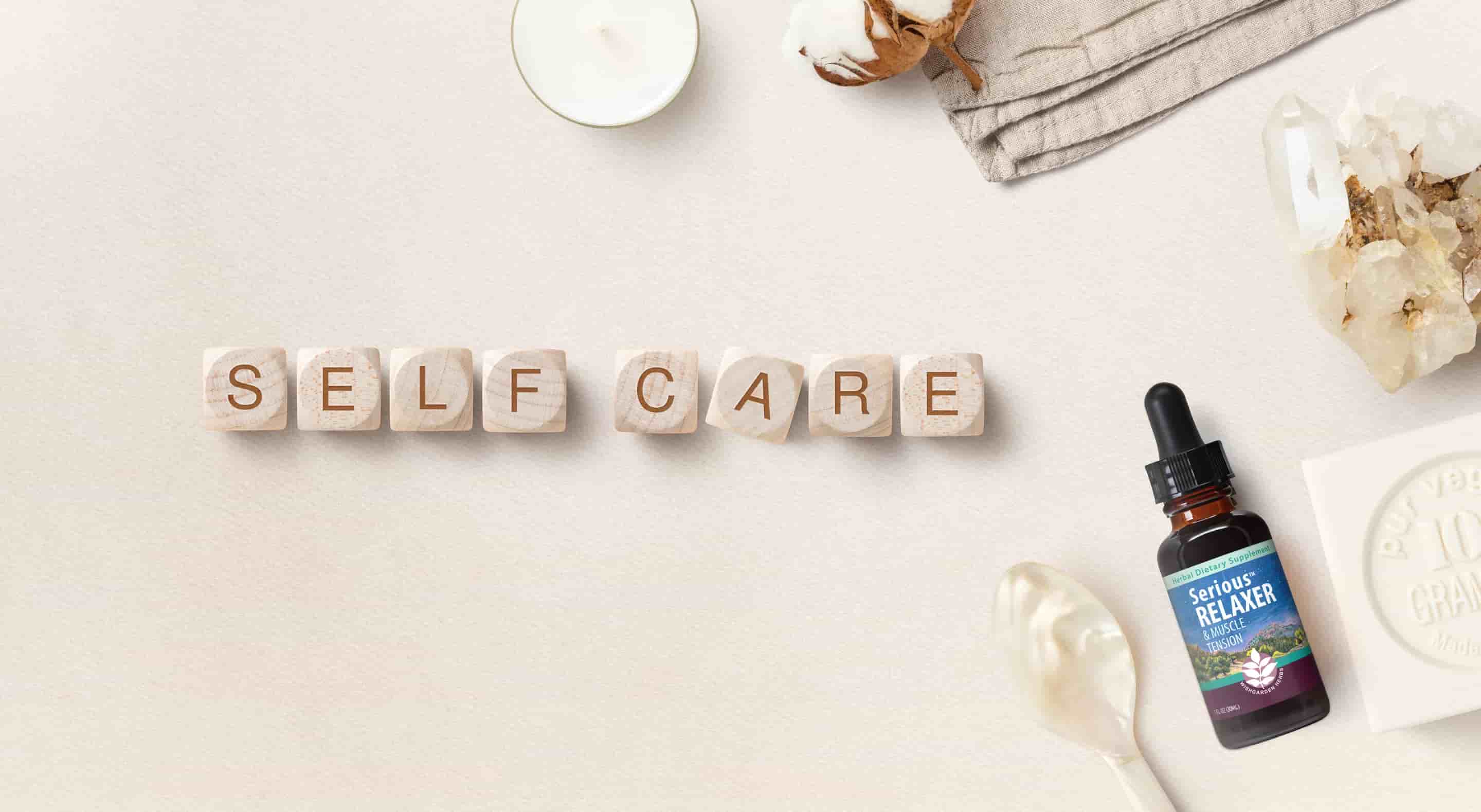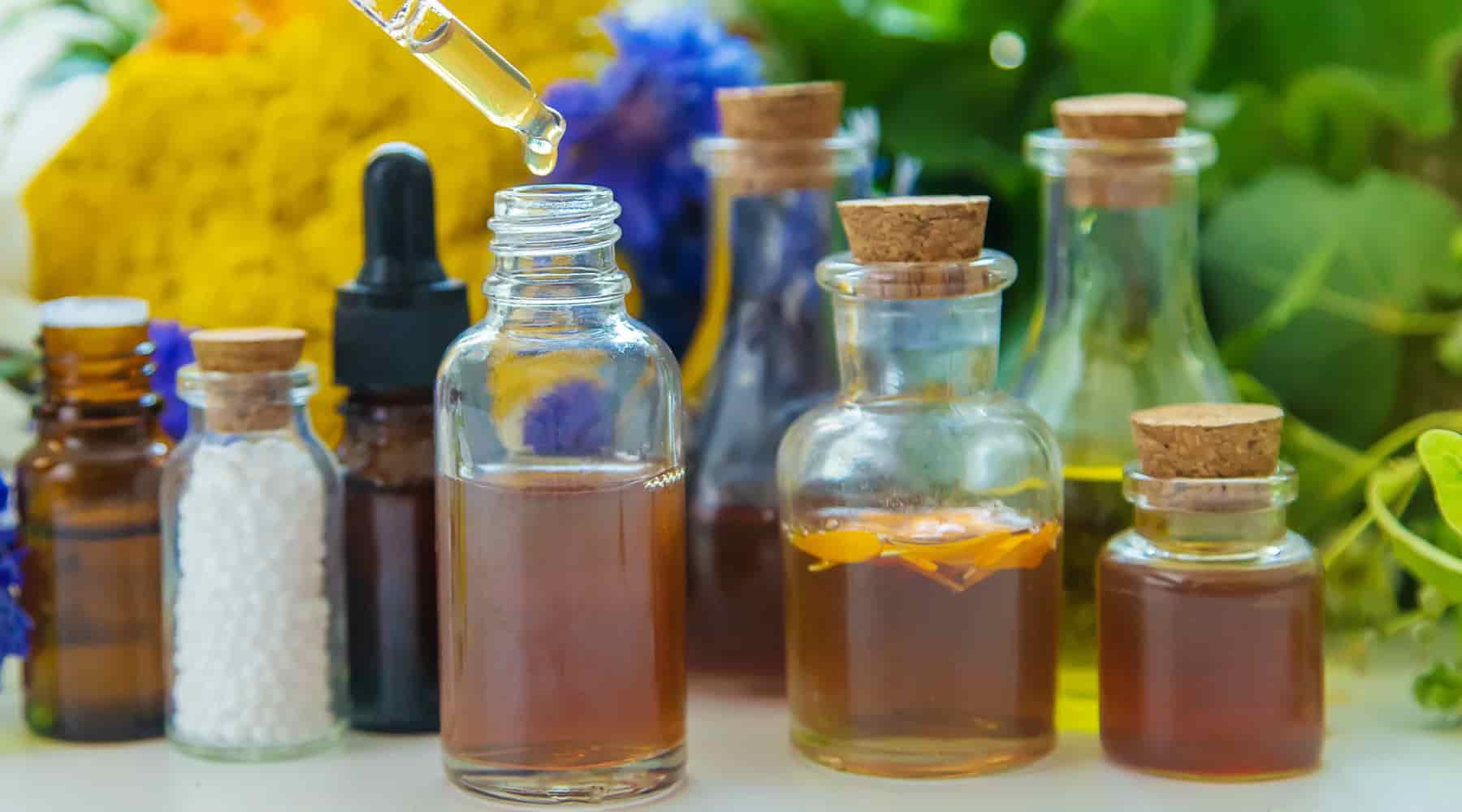With so many ways to stay natural in your approach to healing, sometimes it's hard to narrow down which approach to take. I've found there's some confusion around these common methods: Homeopathy, Essential oils, and Herbal tinctures. Here is a simple break down of the three in hopes to guide you in your healing!
Homeopathy
The concept of Homeopathic medicine is fascinating. It was developed by German physician, Dr. Samuel Hahnemann over 200 years ago. The word "Homeopathy" is derived from two Greek words, "Homeos", meaning similar, and ‘Pathos,' meaning suffering. This speaks to its approach of "like cures like." But what does that mean? In simple terms, Homeopathy treats the ailment with plants, minerals, and other natural substances that produce a similar reaction in the body as the ailment itself. This may seem confusing. Why would someone prescribe a substance that would seemingly cause the same symptom you're trying to relieve? The belief is that our bodies, naturally and instinctively, can respond in the appropriate way, and that it heals itself with very little help from outside sources. When your body senses the substance, its natural defenses will kick in, and the immune system does what it's made to do.
Homeopathic medicine is very diluted and contains very little of the plant, mineral, or other natural substance used. Some remedies are even diluted over a thousand times. For example, the beginning process for the plant sources could begin with a dilution of one-part plant and nine parts alcohol and water. Then all potencies are made from here where they are diluted even more to a specific amount and then shaken vigorously (or succussed). The final product is meant to contain enough plant source for your body to sense the substance, but not enough to cause an over-reaction or toxicity. The dilutions are signified by a number that is followed by a letter such as X, C, or M. The number will refer to the dilution and the letter refers to the ratio.
Homeopathic remedies may not be for everyone but they have been safely used throughout history and can be a staple for those who have plant allergies or pharmaceutical sensitivities. Be sure to consult with a health practitioner when deciding which Homeopathic remedy and what dilution level is good for you.
Essential Oils
Some have argued that essential oils fall in the category of "phytopharmaceuticals." This is because essential oils are not comprised of whole plant substances. They are highly concentrated and made from extracting the volatile oils from the plants, leaving the rest of the constituents behind. Volatile oils are active, odorous constituents that vaporize readily. These oils are called "volatile" for a reason. They are very strong, should not be ingested, and need to be diluted properly when applied to the skin. Some essential oils can even break down skin tissue immediately upon contact.
When used appropriately, essential oils play a beautiful role in aromatherapy, massage therapy, and skin care. Essential oils are made by distillation. The process evaporates and collects the volatile oils to be made into a new liquid containing only that constituent. The amount of plant material needed to make the oil varies. In most cases, enormous quantities of the plants are required to make oils. On average, 10,000 pounds of Rose petals are needed to create 1 pound of the essential oil, and 250 pounds of Lavender are needed to create 1 pound of the essential oil; although some do require much less. Due to these large quantities, sustainable sourcing of the plants is even more critical, which is also something to keep in mind when choosing a brand. It is important to remember that some oils are available in different "grades." These grades depend on the duration of the distillation and play a major part in their quality. When sourced responsibly and used safely, Essential oils can make a great plant-based ally.
Liquid Herbal Tinctures
Herbal tinctures are very simple. They are liquid extracts of medicinal plants usually extracted in alcohol but can also be extracted in vegetable glycerin and water. These liquids act as solvents that draw out the active constituents in plants. Vegetable glycerin and water can be used as a substitute for those avoiding alcohol. You can also use this substitute to dilute alcohol-based tinctures, reducing the alcohol percentage in the final product.
The origin of herbal tinctures is largely disputed, but it is agreed that they have been around for an extremely long time. Some believe herbal tinctures were created by Egyptian Alchemists between 200-300AD, because distillation is one of the 7 stages of Alchemy. Alchemy is a method of medicine that gained popularity in the Victorian Era and is still used today even in the era of modern medicine.
Herbal tinctures are whole plant remedies that maintain all the active plant constituents. These constituents have an incredible ability to communicate with our bodies to promote healing and health of our various body systems. Tinctures are also a sustainable approach to natural medicine as long as the herbs and plants are ethically sourced. To give an idea of how much plant material one would typically use on different scales, standard tinctures typically have a weight to volume ratio of 1:5. When preparing a tincture at home, many use the "folklore method," which is more intuitive and less specific. One would fill a mason jar 1/3 – 1/2 way full of the medicinal herbs, roots, or berries, and then pour 80-100 proof alcohol over the plant(s) letting that sit for at least 3 weeks. The plant material is strained out and voilà, you have yourself an herbal tincture. The tincture can be comprised of a single plant or a formulation of different plants that team up to address a specific ailment. Some herbs may be used in a "tonic" fashion, which means they work best when used regularly and long term. Other herbs have a powerful presence, are fast acting, and work best in acute situations for shorter periods of time. Herbal tinctures are safe for many, but if you are pregnant, breastfeeding, or taking any medications, be sure to consult with a health practitioner before starting an herbal remedy regimen.

Rebecca Younger aspires to spark an interest in herbs within her community through education and incorporating herbs into everyday life in exciting and innovative ways. She studied Herbal Medicine at Herbalism Roots in Denver. She is a customer journey representative at WishGarden Herbs.
For educational purposes only. This information has not been evaluated by the Food and Drug Administration. This information is not intended to diagnose, treat, cure, or prevent any disease, or sell any product.
Recommended Products
Further Reading












